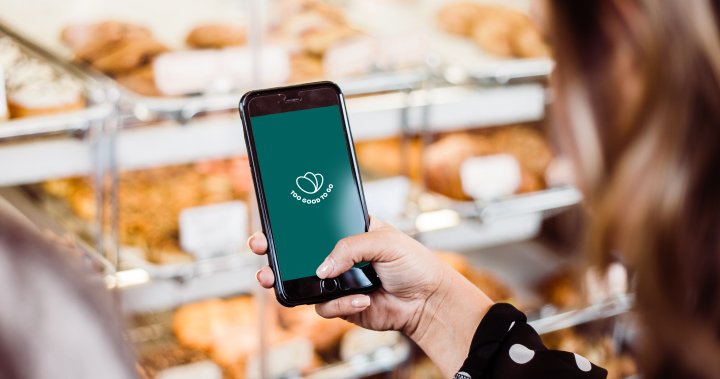An iconic Canadian fast-food restaurant, Tim Hortons, has joined forces with the Too Good To Go app to reduce food waste. Over 200 Tim Hortons locations have been added to the app’s list of partners as part of a national launch. Sarah Soteroff, spokesperson for Too Good To Go, expressed excitement about the collaboration, especially in the markets of Edmonton, Calgary, and Winnipeg. Tim Hortons is a well-known Canadian brand with a strong association with the nation’s food and identity.
The Too Good To Go app was initially created in Copenhagen in 2016 and launched in Canada in July 2021. It now has approximately 7,000 partners across the country and has saved over 2.5 million meals to date. The app connects businesses, including grocery stores, convenience stores, and high-end restaurants, directly to consumers, allowing them to purchase surplus food at a discounted price. This helps businesses recover some of the revenue they would have lost by discarding the food while offering consumers great food at affordable prices. Additionally, by reducing food waste, everyone involved contributes to minimizing the harmful impact on the environment.
Since its spring 2022 arrival in Alberta, the app has gained 612 food partners and attracted around 100,000 users. This has resulted in approximately $1.9 million in savings for consumers and $667,000 in earnings for partners. The addition of hundreds of Tim Hortons locations to the app is expected to significantly benefit both the app and its users. Sarah Soteroff also mentioned that new 7-Eleven locations will be launching on the app, showcasing the range of businesses involved, from convenience stores to high-end restaurants.
Initially, Tim Hortons will offer surplus TimBits and donuts at a discount, with plans to expand to include all baked goods in the future. The collaboration is significant as Tim Hortons stores typically have surplus items that they previously had no means of getting rid of. Any food prepared on-site cannot be sold the next day due to their strict freshness standards. Soteroff emphasized the importance of sustainability and conscious consumer behavior in reducing waste, stating that consumers are just as responsible as businesses.
By joining Too Good To Go, Tim Hortons’ participation is expected to encourage other restaurants and stores to become partners as well. Interested businesses can visit toogoodtogo.ca and click on the “for business” section to provide some basic information for a representative to contact them. The app operates in the language set on the user’s phone.
While the main goal of Too Good To Go was to reduce food waste, Soteroff highlighted the attraction of the cost-saving feature, especially given the rising cost of living and inflation. In the two years since the app launched, food costs have increased by 11% annually, with a recent decrease to 7%. The app provides environmentally conscious and economically savvy shoppers the ability to search for meal deals based on location, store name, or type of food.
To access available bags of food to save, individuals can download the app and enter their location. The app displays all the available bags for that day, with map dots indicating the restaurants or stores offering these bags. Users can then visit the chosen establishments within the specified time window. Soteroff personally recommends searching on the map to find nearby locations, favoriting preferred options for future visits.
In conclusion, the partnership between Tim Hortons and the Too Good To Go app aims to decrease food waste in Canada and offers consumers the opportunity to save money on quality food while contributing to environmental sustainability.
Denial of responsibility! Vigour Times is an automatic aggregator of Global media. In each content, the hyperlink to the primary source is specified. All trademarks belong to their rightful owners, and all materials to their authors. For any complaint, please reach us at – [email protected]. We will take necessary action within 24 hours.


